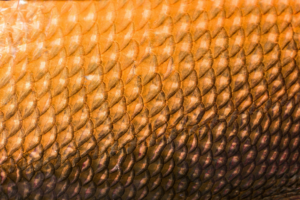06/11/2024
Wool in the fashion industry
Animal-based textiles, such as wool, are usually perceived as natural, clean, and eco-friendly materials. Often the media choose to misleadingly convey them as a mere by-product of meat production that helps to avoid waste. However, animal-based fabrics can be a damaging co-product, and the simple assumption that a non-synthetic material is inherently sustainable can become a distorted view within the industry.
Despite wool being classed as a ‘natural fibre’, farming sheep for its production is harmful to both animal welfare and the environment. The process fails to achieve a total ethics fashion system (one capable of valuing humans, animals and the planet collectively). The detrimental impact this has on the climate, together with pollution, land and biodiversity loss, and excessive use of water and chemicals to scale the fabrication means the production of wool is unsustainable.
According to Textile Exchange (a global non-profit organisation), sheep wool is the most common animal fibre used in the industry, and in 2021 it accounted for 1% of the global fibre market, a concerning statistic when paired with the report from the Textile Exchange of March 2023. This report relayed that the 2019 Green House Gas (GHG) impact of the animal fibre category was estimated to be around 35 million tonnes CO2e. Sheep wool had the largest footprint, accounting for around 98% of the GHG impact for the category.
Current Alternatives
To avoid animal cruelty, alternatives to sheep wool are made from non-biodegradable fibres, such as polyester, acrylic and nylon. Despite being synthetic, these plastics almost always have a lesser negative impact than wool. Their production is widespread and cheap, making them a popular choice in an industry dominated by consumer demand for fast fashion. Regardless of these positive aspects the use brings us no closer to a sustainable system due to them being a form of plastic, meaning that they form part of the fossil fuel industry and contribute to GHG emissions. The fibres also cause microplastic pollution by shedding microfibres which can enter waterways, causing further environmental contamination.
Sustainable, raw and biodegradable fibres capable of being produced without the use of harmful pesticides and chemicals should be used instead and research into such alternatives (organic cotton, linen, hemp, Tencel and bamboo) is ongoing. Brands are starting to reframe their views on the use of these materials as evidenced by the popular American retailer Patagonia Inc, which has recently released its own hemp collection for outdoor clothing. However, there still seems to be a reluctance within the industry at large to invest in these materials at scale; creating an urgent demand for innovative solutions.
Creating new alternatives
FABORG is an innovative company in India producing WEGANOOLTM, a plant-based cashmere which is a 100% biodegradable alternative to wool and synthetic fibres. The material is derived from Calotropis stem and pod fibres, blended with 70% organic cotton.
The Calotropis Gigantea plant requires virtually no pesticides or water to grow. Every Kg produced preserves 6000 L of clean drinking water in contrast to 100% cotton yarn. The overall production of WEGANOOLTM is also a zero waste concept where any residues generated during production are repurposed into ‘AARKA’, an organic agricultural product that farmers can use to protect their plants from pests and diseases without the need for toxic pesticides and fungicides.
The company has patented the whole linear processing of Calotropis, integrating WEGANOOL™, AARKA & Natural Dyes. In June 2023 WEGANOOL™ was showcased at the ‘Future Fabric Expo’ in London, the world’s largest annual showcase of sustainable materials which is attended by our sustainable materials team at Reddie & Grose.
New Technology
Synthetics are repeatedly chosen over current and new alternatives to animal-based fabrics on the basis that natural fibres cannot typically be formed and shaped the way synthetics can, nor can they be engineered to exhibit the same physical properties and performance versatility.
That is, until the development of CLARUS®, a technology which enables natural fibres of cotton and hemp to have their virgin properties enhanced. The technology uses ionic liquids to swell, mobilise and reconstruct cellulosic bonds at the molecular level, creating lengthened, stronger and more durable fibres. The salt is removed and recaptured for reuse, leaving the original natural fibre with new performance characteristics.
The patented CLARUS® technology was created by Natural Fibre Welding (NFW) which has been listed by FastCo as one of the world’s most innovative companies for two consecutive years. The company is aiming to build a portfolio of new sustainable materials.
Depending on a brand’s needs, NFW can adapt their patented processes for different use-cases. NFW’s CLARUS® platform is covered by US Patent No.10,982,381 with more pending.
Innovative materials technology is at the core of a sustainable fashion industry. At Reddie & Grose LLP, we have a lot of experience in the intellectual property protection of sustainable materials and would be happy to offer advice on the protection of inventions in this field. For an informal discussion please contact the author below.
Read the previous article of Sustainable Style: Fur, Feathers, Fashion: Is it sustainable?
This article is for general information only. Its content is not a statement of the law on any subject and does not constitute advice. Please contact Reddie & Grose LLP for advice before taking any action in reliance on it.



